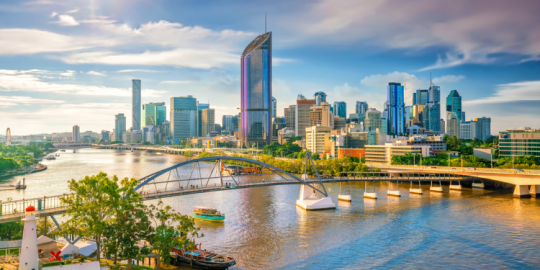The new post-COVID expats have a desire for change
Ironically, the pandemic lockdowns fueled the desire to travel, especially among students, who returned to international mobility as soon as borders reopened. Similarly, professionals were motivated by immigration programs in countries facing labor shortages. Leaving one's country to find greener pastures has always been a trend. But twenty years ago, the "golden expat" image was associated with a high-level executive with a lucrative expat contract and a lot of perks, enjoying life in a foreign country.
The new face of expats
This image of expats had already faded long before the pandemic. Expat contracts are costly for businesses, which now prefer hiring locally. Prospective expats are younger (students, young professionals) and don't hesitate to leave their home countries to start afresh elsewhere. This trend has only grown since the pandemic, and it spans multiple countries. Young people are less drawn to previous generations' traditional social mobility model. Securing a permanent contract and buying a house are no longer their primary goals.
Some workers in high-demand professions prefer to gain experience by moving between multiple countries. They know their skills are sought after, and they embrace a nomadic lifestyle despite its challenges (family separation, loneliness, visa paperwork). This mindset aligns with the growing digital nomadism trend. Propelled by remote work, which is itself highlighted by the pandemic, digital nomadism is attracting more and more young professionals. They work abroad as freelancers or employees for a few months or an entire year. They're not necessarily after wealth or job security but instead value the flexibility of a nomadic lifestyle due to fewer commitments.
Living the dream is a strong motivation for moving abroad
Just as COVID-19 fueled the desire to travel, the ongoing global crises have reignited dormant dreams. Those looking to move abroad see these uncertain times as a springboard for pursuing their aspirations. Dreams, goals, and ambitions remain strong motivators for expats. While earning more and improving one's standard of living are still key reasons, they are no longer the sole purpose.
This gradual shift toward finding "meaning in life" through expatriation is evident among Working Holiday Visa holders, students, and workers alike. The practical goal of improving one's standard of living through higher income aligns with personal growth.
Expats want to give meaning to their journey. Some plan to move abroad permanently, while others just want to spend a few years overseas. But they all aim to return transformed by their experiences. They couldn't choose their birthplace, but they can choose their new home. This mindset inspires new expats to seek adventure—a more humane and environmentally conscious adventure. New expats are increasingly aware of ecological issues, and some choose their destination based on environmental policies.
Building a future far from crises
Some economists suggest we stop using the word "crisis," reminding us that crises are temporary. While the "health crisis" may be behind us, the "economic crisis" persists, accompanied by unemployment, energy, and inflation crises, not to mention wars, terrorism threats, and geopolitical turbulence. This is not a picture anyone wants hanging on their wall.
Many are keen on moving abroad to escape their home country's despair. But where do they go? We often hear about crises in Japan, Australia, Italy, the UK, the US, South Africa, Morocco, Canada, Sweden, Brazil, Mexico, China, etc. Housing, economic, energy, social, and political crises are everywhere.
Despite this, potential expats approach things with a positive outlook. They look for countries experiencing less severe crises or challenges that won't impede their plans. While major powers may be in crisis, they also offer better career prospects, higher incomes, more freedom, and tranquility. This motivates the French to immigrate to Canada, the Indians to try their luck in the United States, the Indonesians to explore Japan, etc. Alongside them, thousands of others venture abroad hoping to improve their living standards.
International training to compete with AI
In 2024, expatriation also has to contend with AI (artificial intelligence). The generative types usually create the most buzz and polarize the scientific world and the public sphere. Foreign tech talent finds itself at the forefront in every sense. Optimists believe AI development will further promote international careers. Startups and large companies are competing for the best developers, roboticists, coders, and engineers.
But pessimists worry that the innovation world needs to account more for people, mainly foreign workers. The significant layoffs in tech (which continue) are fresh in everyone's memory. One of the most notable examples is the plight of H-1B visa holders in the United States. The pandemic highlighted the complexities of this visa, and the layoffs plunged many foreign talents into uncertainty and precariousness. Since then, the United States has reformed its visa policy (more H-1B visas but higher fees). Therefore, prospective expats are remaining cautious.
For some, this is one more reason to train internationally. For others, while it's important to develop AI careers, it is also vital to regulate AI. They believe AI should not turn the world into the Wild West. For instance, the development of lawyer AIs would lead to a two-tier justice system. Those unable to afford a good lawyer might rely on AIs and risk inadequate representation.
Living abroad with no regrets
Alongside these "new" motivations for moving abroad, let's not overlook familiar reasons such as learning a new language, discovering a new culture, challenging oneself, making friends abroad, gaining an education, living close to nature, and more. All these motivations can be summarized in one phrase: live abroad to live without regrets. This is why so many in their twenties, thirties, and forties are surfing on countries' announcements to try digital nomadism, student life, or career opportunities.
















